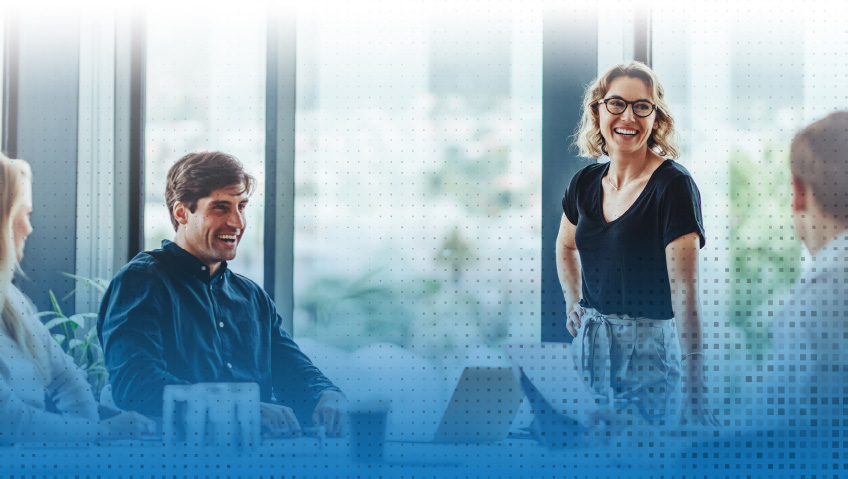The Arizona Regional Economic Development Foundation (AREDF) is dedicated to enriching the quality of life in rural communities through business development, recruitment, expansion, and retention. By working together with local entrepreneurs and small business owners, AREDF helps nurture a thriving economic environment. The foundation, led by Executive Director Mignonne Hollis, offers a variety of services that not only foster growth but also address the unique challenges of rural economies.
One of the most notable aspects of AREDF is its deep connection to the community. As Hollis emphasizes, the organization’s customers are the community itself. AREDF provides entrepreneurs and small business owners with essential resources such as shared office spaces which are fully furnished and equipped with the best broadband available in the area, a particularly significant offering in rural settings. Access to reliable internet connectivity is often a hurdle in rural areas, making AREDF’s provision of high-quality broadband a game-changer for local businesses.
“We focus on job creation by working closely with small businesses and entrepreneurs, as they are the backbone of our rural community,” says Hollis. This proactive approach allows AREDF to address not only the economic growth of businesses but also the overall well-being of the community through job creation and support for local ventures.
AREDF has set up three buildings as co-spaced locations where entrepreneurs can rent shared office space, helping them reduce overhead costs while accessing a professional environment. Along with these spaces, the organization offers wraparound services to help businesses with marketing, business plan development, and securing access to capital. This holistic support system ensures that local entrepreneurs can grow their businesses sustainably.
A key factor in the success of AREDF is its dedicated team. Hollis leads a small but effective group that includes Sarah Pacheco, Assistant Economic Development Director, and Stephanie Reed, Director of Retention and Expansion. The tight-knit nature of the team allows for streamlined communication and collaboration.
“My team is fantastic,” Hollis shares. “Sarah focuses on local relationships, while Stephanie oversees the co-spaces and provides the essential wraparound services that help our entrepreneurs thrive.” The balance between local outreach and broader strategy allows AREDF to tackle economic challenges on multiple fronts.
Hollis has intentionally sought out team members who not only understand the community but also want to make a tangible difference, and the team’s diversity in both background and skill set ensures that different groups within the community are heard and represented. This intentionality in hiring extends to AREDF’s partnerships. Rather than sticking to traditional partners such as Chambers of Commerce or universities, AREDF has also worked closely with nonprofit and faith-based organizations.
The team’s dedication to Cochise County’s development has been instrumental in helping businesses overcome challenges such as marketing, capital access, and navigating regulatory hurdles. For a small community, having an organization like AREDF with a clear focus on local support makes a significant difference in ensuring the long-term success of businesses.
In addition to its ongoing efforts, AREDF has received the Ignite Grant, a three-year Economic Development Administration (EDA) grant aimed at identifying and addressing gaps in resources available to entrepreneurs throughout Cochise County. As part of this project, AREDF conducted a thorough asset mapping process, involving roundtable discussions with community members and service providers such as local Chambers of Commerce, universities, community colleges, and the Small Business Development Center. In the second and third years of the grant, AREDF plans to use this information to build pipelines that better connect entrepreneurs with the services they need. This will ensure that businesses have the tools and resources required to grow and succeed in a competitive, and often challenging, rural economic environment.
For AREDF, this means providing resources that enable people to take control of their financial futures by starting and growing their own businesses. Supporting local entrepreneurship is a critical strategy for combating the effects of population loss, as it helps individuals remain in their communities while contributing to economic stability and growth.
A significant aspect of AREDF’s strategy is its commitment to true partnerships. As Hollis describes, these are not the superficial partnerships in which a logo is slapped on a sponsorship, but meaningful collaborations that directly impact the community.
One such partnership is with Per Scholas, a nonprofit organization that builds the digital economy by working closely with industry leaders to determine workforce needs. Per Scholas develops training programs tailored to these needs, ensuring that program participants are prepared for jobs in the growing digital economy. Upon completing their training, graduates are guaranteed a job, which has proven to be a valuable resource for rural communities.
“We have been fortunate to receive several scholarships from Per Scholas for individuals in our community,” Hollis tells us. “We were able to identify people who needed this opportunity, such as single parents without a steady income, and get them through the training. These individuals are now earning a sustainable income, with jobs paying between $40,000 and $50,000.”
Additionally, AREDF partners with the Digital Equity Institute to offer “hives” in rural areas where people can access technology and receive digital training. Whether it’s helping older adults learn how to use their devices or assisting entrepreneurs in building websites, these hives provide much-needed support for digital literacy in rural communities.
This focus on breaking down digital barriers extends to individuals with disabilities, who often face additional challenges in navigating the digital world. AREDF is working to ensure that rural communities are inclusive and accessible to everyone, from elderly individuals to people with visual or hearing impairments.
While economic development organizations often face competition when it comes to attracting businesses and resources, AREDF takes a different approach. Rather than seeing others as competitors, AREDF believes in working together to help communities thrive. AREDF’s mission-driven approach is what allows it to stand out in the economic development field. By prioritizing underrepresented communities and forming strong partnerships, the organization ensures that no one is left behind.
One of AREDF’s proudest achievements is securing the Ignite Grant, which has enabled the foundation to conduct its gap analysis and improve the support available to local entrepreneurs. The grant, along with AREDF’s membership in the Rural Innovation Network, has provided vital tools and resources to help the organization grow.
Looking to the future, AREDF continues to expand. The foundation recently acquired a 44,000-square-foot building, which will house a technology and innovation hub as well as one of its co-spaces. “We’re working on creating a one-stop shop for entrepreneurs, where they can access everything they need under one roof,” Hollis explains. “It’s important to us that the space is welcoming and accessible, so we’ve made sure it’s located on a bus line to reduce transportation barriers.”
In addition to growing its physical spaces, AREDF is focused on addressing broader issues like broadband access, food security, and transportation in rural communities. These challenges, which go beyond job creation, are crucial to building a sustainable economic environment.
Indeed, the field of economic development has changed significantly in the past 20 years. Where once it was enough to wait for opportunities to come, organizations now have to be much more proactive in seeking out partnerships, resources, and solutions. For rural communities like Cochise County, economic development requires addressing a unique set of challenges, from population decline to digital inequality. But through its comprehensive approach, AREDF is working to ensure that rural communities are not left behind.
Hollis and her team are committed to creating opportunities for everyone in the community, especially those who have historically been underrepresented. “It’s about giving everyone a voice,” she says, “especially those who have never had a seat at the table before. We’re minimizing the gaps and making sure that everyone is valued.”
In the long run, the work of AREDF is not just about business development; it’s about community development. By supporting entrepreneurs, partnering with nonprofits, and building a culture of inclusivity, AREDF is helping rural communities grow and thrive, one business at a time.






